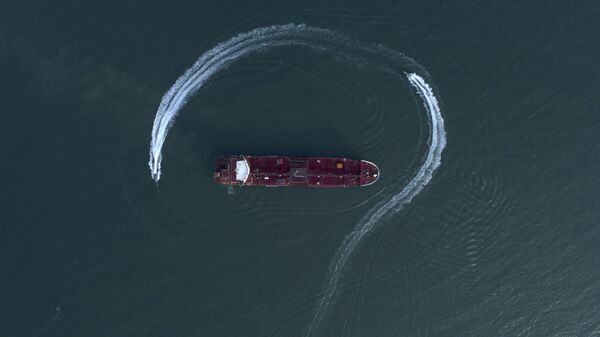Heshmatollah Falahatpisheh, a senior Iranian lawmaker and former head of the parliament’s National Security & Foreign Relations Committee, has proposed seizing Canadian commercial vessels in the Strait of Hormuz in retaliation to a Canadian court’s decision to sell off Iranian assets.
“An order should be issued to confiscate ships and goods that set off from the Hormuz region to the destination of Canada,” Falahatpisheh said, suggesting that this measure “should be adopted as soon as possible.”
The lawmaker accused political lobbies in Canada of being behind the seizure and selloff of Iranian assets in a bid to try to “plunder” his country’s wealth.
Falahatpisheh also noted that “an official list of Canadian assets and properties inside Iran should be prepared,” as well, but did not clarify whether these should be seized, given that it may lead to further seizures of Iranian property in Canada. In any event, he called on Iran to “decisively counter” Canada’s actions.
Earlier, Iran’s foreign ministry condemned the Ontario higher court’s decision to seize and sell the property, calling the move a “clear breach of international law” and calling on Ottawa to immediately reverse its decision or face consequences. Tehran threatened to turn for help from international institutions if Canada does not reverse its “unlawful decision.”
On Saturday, Abbasali Kadkhodaei, an advisor to Iran’s influential Guardian Council, accused Canada of engaging in “economic terrorism,” and called its actions an attack on his country’s sovereignty.
The ‘terrorist groups’ listed in the Ontario Supreme Court of Justice ruling last month included Hamas and Hezbollah, two groups which the US and its Western allies, as well as Israel, consider terrorist groups, but which the majority of the world, including Iran, Russia and China, do not classify as such. The court documents accused Iran of ‘bankrolling, arming and training’ the groups.
Claimants in the case included the family of one Marla Bennett, a US national killed in a 2002 bombing in which Hamas was allegedly involved, and two others said to have been held hostage by Hezbollah in 1986 and 1991.
The $28 million asset selloff included tens of millions of dollars received in the sale of Iranian-owned buildings in Ottawa and Toronto. One of the buildings listed for sale was the former Iranian Cultural Centre, a prime piece of real estate bought by a developer from Montreal for $26.5 million.
The Islamic Republic is no stranger to having its assets seized by foreign governments. In 1979, after revolutionaries overthrew US-backed dictator Mohammad Reza Shah Pahlavi, Washington and its allies seized tens of billions of dollars’ worth of Iranian assets. In the years that followed, US courts have gradually chipped away at these assets, with a court ruling from 2016 ordering Iranian cash be paid out to the families of US servicemen killed in the October 1983 truck bombings in Beirut, Lebanon. Iran challenged the ruling in the International Court of Justice, stressing that it had nothing to do with the attacks. Two years later, in 2018, a New York court bizarrely ordered Iranian assets to be used to compensate the victims of the 9/11 terror attacks, even though no evidence has ever been presented that Iran had anything to do with these attacks.




